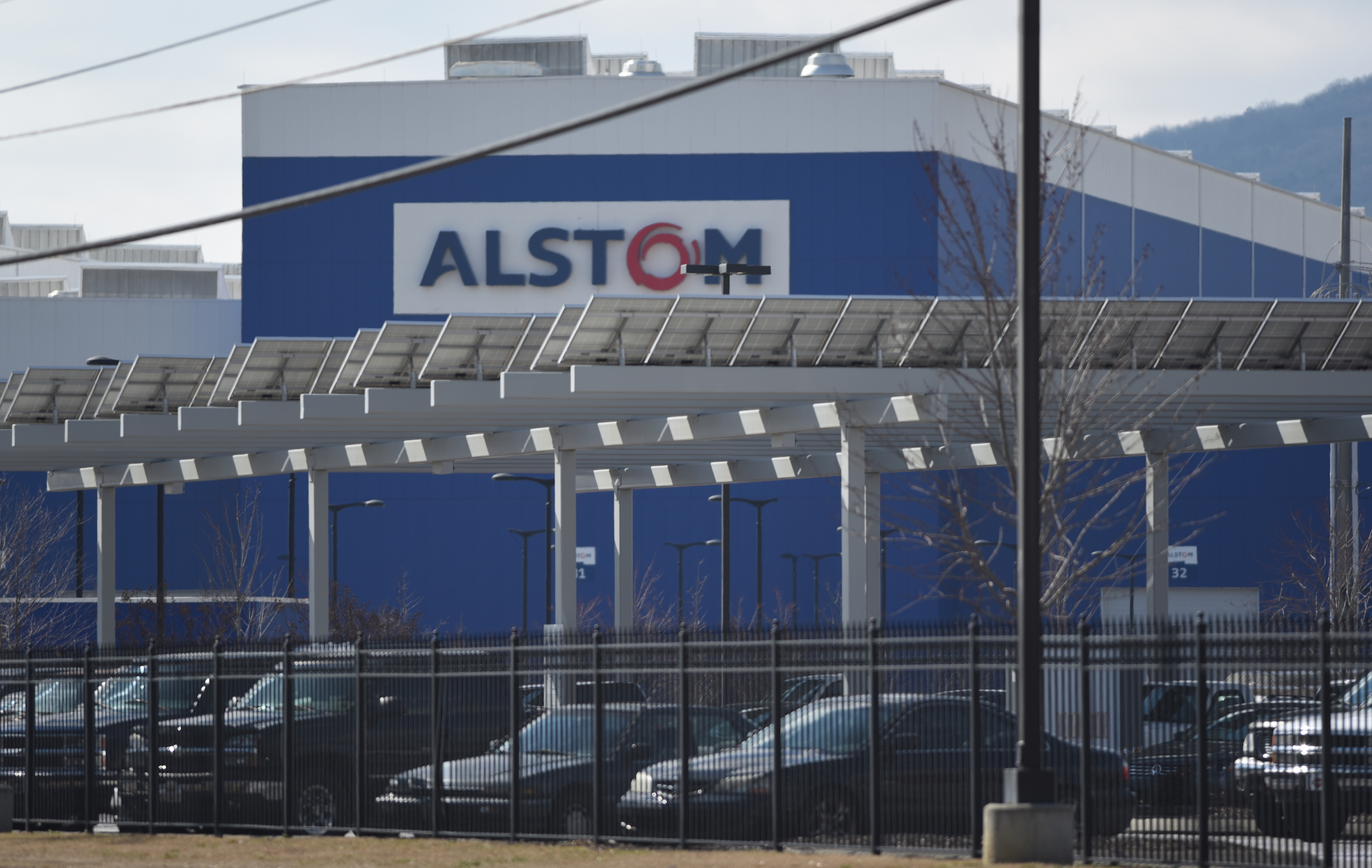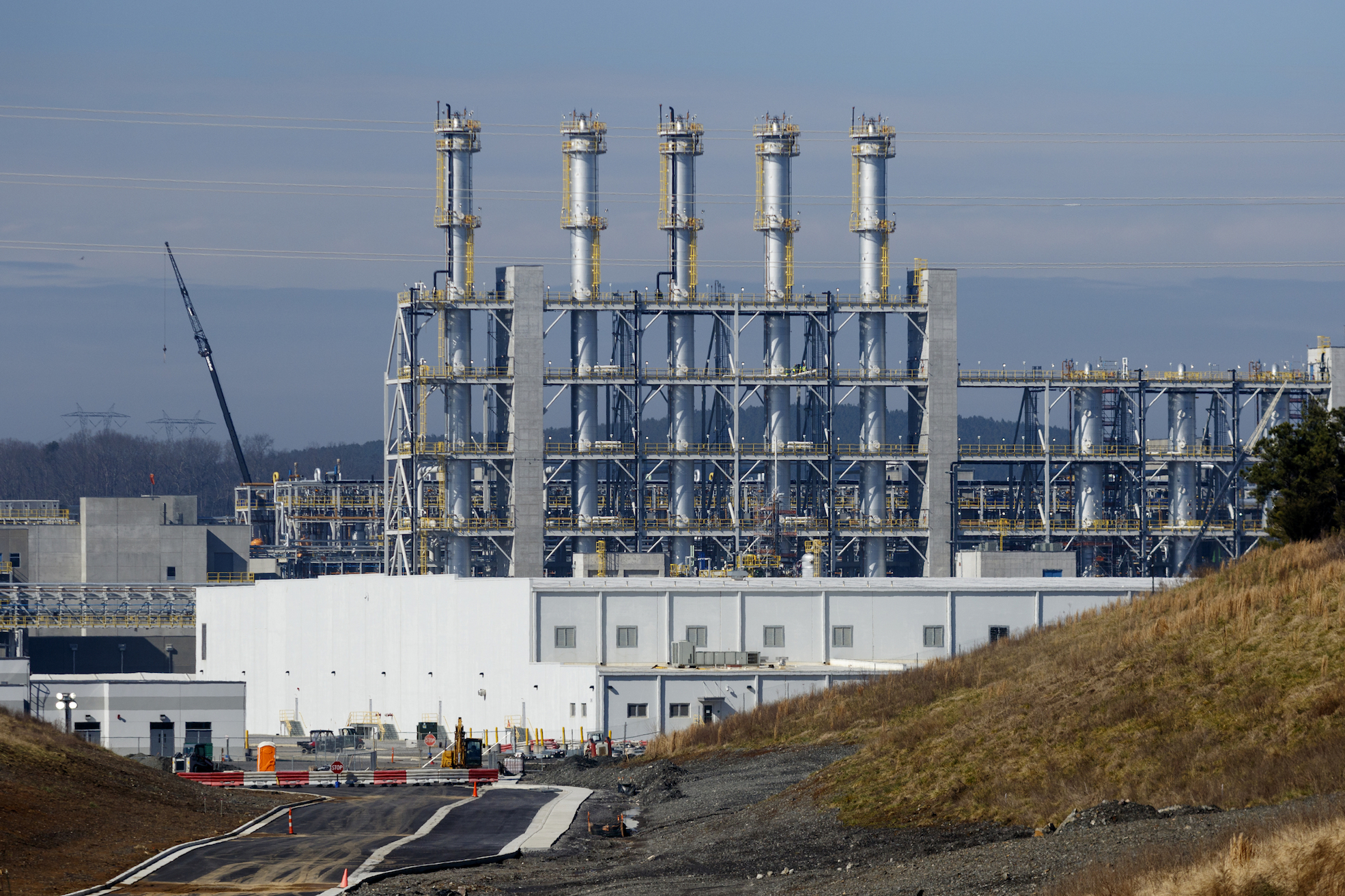Thats why we do business recruitment.
For about three decades, Phil Chaffin worked at the sprawling Chattanooga waterfront manufacturing site GE Power plans to shut down at the end of this year.
"I was really surprised when GE announced it would close," he said about the Riverfront Parkway operation the company bought from Alstom in late 2015. "Alstom had put all this capital in this facility. We need industry here. That's what makes the world turn."
When the plant closes, it will end more than a century of manufacturing by predecessor companies dating back to the late 1880s in Chattanooga. But it's not the only so-called legacy business that struggled in 2016 as some of the region's biggest employers are closing or cutting back.
The GE plant is shedding 235 manufacturing jobs and will have just a remnant of about 50 non-manufacturing people working in Chattanooga when all the cuts are done, according to the company. Known as Combustion Engineering for many years, the company employed nearly 6,000 people in the early 1980s making fossil-fuel and nuclear steam generating equipment.
Meanwhile, the Invista nylon factory on Access Road in Chattanooga, long known as DuPont, is shifting much of its production elsewhere. Invista said last summer it expected "a significant" reduction in its 300-member workforce at the plant, which employed 5,000 four decades ago.
Nearly 2,000 Goodman Manufacturing employees in Dayton, Tenn., and Fayetteville, Tenn., are expected to see their jobs go to another facility in Texas. The manufacturer of heating, cooling and refrigerant products has operated in Tennessee for decades.
Also in Dayton, Fujifilm Hunt Chemicals U.S.A. Inc. announced this year it's closing its plant by the end of March and idling 84 employees. The company said the closing was needed "to overcome market challenges" in the film processing and chemicals industry.
In Bradley County, Tenn., battery maker Duracell recently unveiled plans to close its packing plant by 2018 and cut about 140 jobs, though the manufacturing operation in Cleveland won't be affected, officials said. Its predecessor company began operating in the 1960s.
Other major employers in the region that are not closing shop are still cutting staff to adjust to changing market conditions. With slower growth in power consumption, for instance, the Tennessee Valley Authority continued to cut its staff this year after finishing construction of the unit 2 reactor at its Watts Bar Nuclear Power Plant - the last major power plant of its kind that TVA plans to build for at least two decades.
TVA once was one of the region's biggest employers with 51,709 employees at its peak in 1981. But the federal utility since has trimmed its staff to only about 10,000 employees and cut its power purchases and need for as many employees at area employers such as Westinghouse, Alstom and Stone & Webster Engineering.
Charles Wood, the Chattanooga Area Chamber of Commerce's vice president of economic development, said he has heard companies compared to people. They're born, get married, go through mergers, divorces, bear children and eventually go away, he said.
"That's why we do business recruitment," Wood said.
Gary Farlow, who heads the Cleveland/Bradley County Chamber of Commerce, said it's important to keep wooing companies.
"You can't turn it on and off like a faucet," he said. "You've got to keep going."
Wood said diversification of business segments is key for the Chattanooga area.
"We're blessed with a pretty diverse market," he said. "But we're focused on different verticals and not in the same cyclical movements as each other. What you don't want is to be all on the same cycle."
Despite the plant closings and staff cutbacks at what were once many of Chattanooga's biggest employers, other new businesses have been started, grown or relocated to the region in recent years.
For example, Volkswagen's automotive assembly plant is slated to have up to 3,400 employees by the end of next spring as staff is added to produce the new Atlas sport utility vehicle. Suppliers to the plant in the area also are growing their employment numbers.
As a result, employment rose in 2016 at a robust pace in both the Chattanooga and Cleveland metro areas. In the 12 months ended in November 2016, the two metro areas in Southeast Tennessee combined added a net 20,110 jobs and grew more than three times the national pace for employment growth in the same period.
Overall employment growth has been much slower in metropolitan Dalton. The carpet capital has yet to recover all the jobs lost during the Great Recession when the floorcovering industry shrank along with the collapse in home building. Carpet production is more efficient and less labor intensive than in the past so Dalton leaders say they are trying to broaden their industrial mix even while staying committed to floorcovering, which is still Dalton's biggest source of jobs.
Carl Campbell, who heads the Dalton-Whitfield County Joint Development Authority, said that while the Northwest Georgia group will always make sure the area is the right place for the floorcovering industry, it's also receiving looks from "other diversification pieces."
Food products and chemicals are two sectors in which it's interested, he said.
"Everybody is after the automotive piece," Campbell added. "We continue to push toward our strengths."
One challenging area ahead for the region is its workforce as the unemployment rate continues to ratchet down, officials said.
"We do have challenges," said Farlow. "Workforce is the biggest one."
But, he said, the past year was a banner one in terms of numbers of prospects looking at Bradley County.
"I think unless something silly happens, we'll continue to do pretty well," Farlow said, citing a recent $150 million expansion at the Wacker site near Charleston, Tenn., where the German chemical company wants to build another plant.
Campbell, too, said transitioning the skills of people to where they're needed will be key in 2017.
Whitfield County also has seen a lot of prospect activity over the past four or five months, he said.
"I think our community will look a lot different in 12, 18, 24 months," said Campbell.
Wood said Chattanooga has a lot of homegrown companies "really starting to jump," citing businesses such as high-tech venture Skuid and commercial insurance company Reliance Partners.
"We've got locally based companies with entrepreneurs. This is home," Wood said. "They're investing in themselves. I don't know if Chattanooga has seen that in a long time."
Contact Mike Pare at mpare@timesfreepress.com or 423-757-6318.



